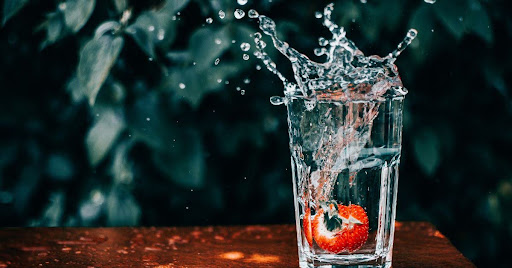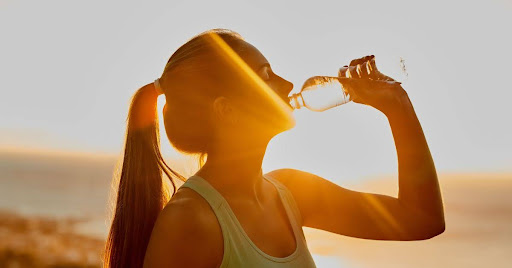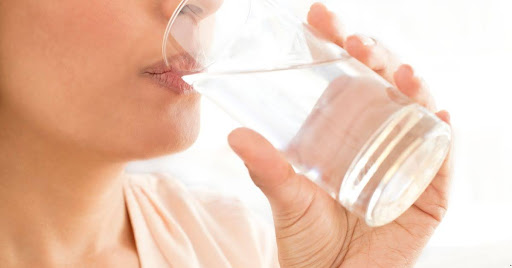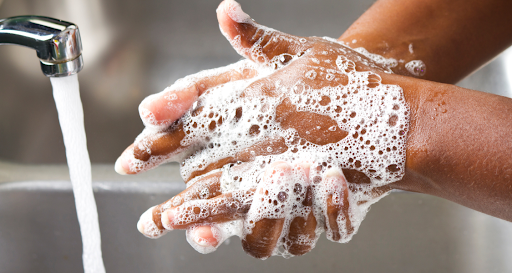5 Tips to Stay Hydrated Throughout the Day
3 min read
By DocGenie , Published on - 01 March 2025 As temperatures rise, maintaining proper hydration becomes essential for overall health and well-being. Dehydration in the summer can lead to fatigue, headaches, poor concentration, and even heat-related illnesses. Staying hydrated in the summer isn’t just about drinking water—it's about adopting consistent and effective hydration habits throughout the day.
As temperatures rise, maintaining proper hydration becomes essential for overall health and well-being. Dehydration in the summer can lead to fatigue, headaches, poor concentration, and even heat-related illnesses. Staying hydrated in the summer isn’t just about drinking water—it's about adopting consistent and effective hydration habits throughout the day.In this guide, we’ll explore practical hydration tips for summer, including what to drink, how much water to consume, and strategies to stay hydrated in the summer heat.
Why Hydration Is Essential During the Summer
 During summer, the body's water loss increases due to sweating, especially during physical activities or when spending time outdoors. This makes staying hydrated not just a matter of comfort, but a vital part of maintaining good health.
During summer, the body's water loss increases due to sweating, especially during physical activities or when spending time outdoors. This makes staying hydrated not just a matter of comfort, but a vital part of maintaining good health.Key benefits of staying hydrated include:
- Maintaining body temperature: Helps the body stay cool during high temperatures.
- Supporting digestion and metabolism: Water aids nutrient absorption and metabolic processes.
- Enhancing physical performance: Proper hydration prevents fatigue and muscle cramps.
- Boosting cognitive performance: Even mild dehydration can affect memory and concentration.
- Promoting skin health: Water keeps skin supple, reducing dryness and breakouts.
5 Effective Tips to Stay Hydrated

- Start Your Morning with a Glass of Water Drinking water first thing in the morning helps rehydrate the body after several hours of sleep. It jumpstarts metabolism and prepares your system for the day ahead.
- Drink Consistently Throughout the Day Instead of waiting until you feel thirsty, sip water at regular intervals. Thirst is not always a reliable indicator, as the body may already be mildly dehydrated by the time you notice it.
- Carry a refillable water bottle everywhere.
- Set reminders on your phone to take water breaks every hour.
- Monitor urine color—it should be pale yellow if you're properly hydrated.
- Include Hydrating Foods in Your Diet Hydration doesn’t only come from drinking fluids. Many fruits and vegetables have high water content and contribute to your daily fluid intake. This is particularly helpful in staying hydrated in the summer while also boosting nutrition.
- Watermelon
- Cucumber
- Oranges
- Lettuce
- Strawberries
- Tomatoes
- Celery
- Opt for Healthy Hydrating Beverages Plain water is excellent, but there are several other beverages that help you stay hydrated and add variety to your routine.
- Coconut water (a natural electrolyte source)
- Buttermilk
- Lemon water
- Herbal teas
- Fresh fruit-infused water
- Adjust Your Water Intake Based on Activity and Weather Your hydration needs increase when you engage in physical activity or spend extended time in the heat. Sweating leads to a loss of fluids and electrolytes, which must be replenished promptly.
- Drink an additional 250–500 ml of water for every 30 minutes of physical activity.
- If outdoors for long periods, take frequent sips of water even if you don’t feel thirsty.
- For high-intensity workouts or extreme heat, consider oral rehydration solutions or electrolyte drinks.
Tip: Keep a glass or bottle of water by your bedside to make this a daily habit.
How to stay on track:
Best hydrating foods to include:
These foods are also rich in vitamins, minerals, and antioxidants that support immune function and digestion.
Hydrating options include:
Avoid or limit drinks with high sugar content, caffeine, or alcohol, as they can contribute to fluid loss.
General guidelines:
Additional Tips for Staying Hydrated in the Summer
- Eat smaller, lighter meals: Heavy meals generate more body heat and may reduce your desire to drink water.
- Avoid over-chilled water: While cold water is refreshing, extremely cold water can slow digestion. Room temperature or slightly cool water is better for continuous hydration.
- Use hydration tracking apps: Apps like WaterMinder or MyFitnessPal can help you track your water intake.



